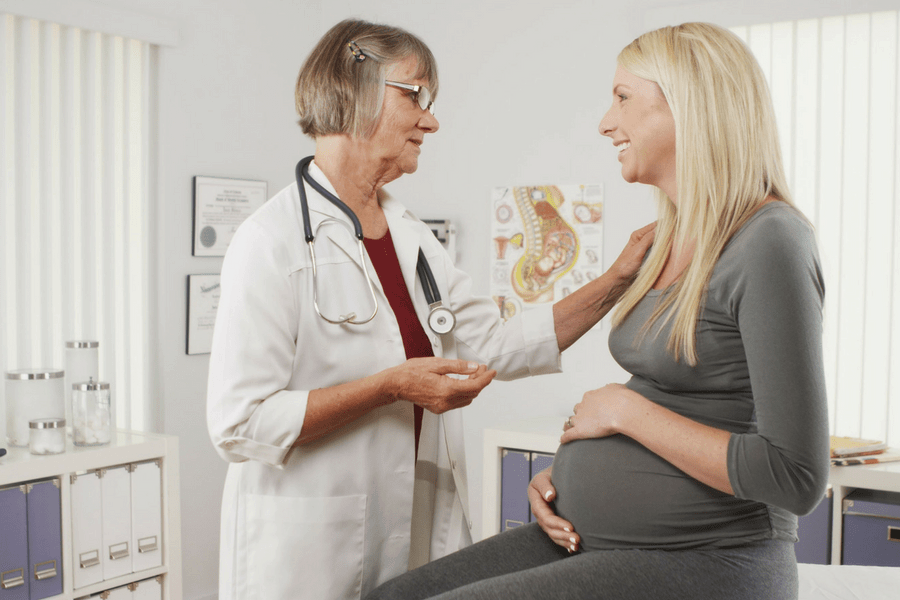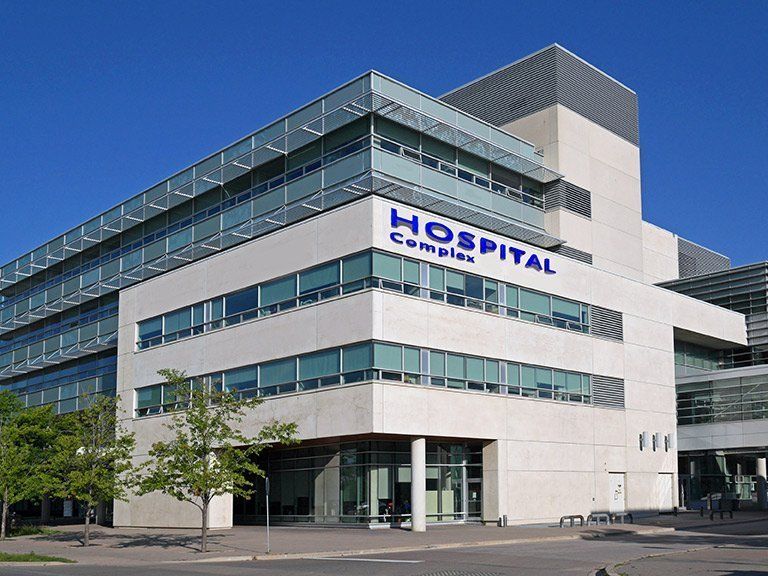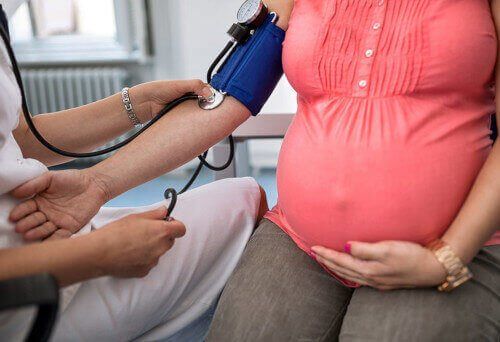Normal & Abnormal Pregnancy Symptoms
From Dr. Z - Carpal tunnel syndrome specialist
Normal & Abnormal Pregnancy Symptoms
Are you pregnant? Does your body feel odd, like never before? If so, it's important to know what are normal & abnormal pregnancy symptoms. This knowledge can mean the difference between feeling relatively secure versus enduring serious health issues for you and your baby.
The symptoms you’re feeling right now may be a normal part of what to expect while pregnant. But they could also be a sign of something more serious. You need to know the difference.
The two foremost expert medical organizations on the matter, the National Institutes of Health and the American College of Obstetricians and Gynecologists suggest embracing the following advice...
"Pregnancy will cause uncomfortable symptoms. Some result from changes in your hormones. Others result from your baby’s growing weight and pressure. Each woman experiences the discomfort differently."
Knowing what to expect during pregnancy is important because it determines whether or not you should see a doctor (or even visit an emergency room). And knowing what to expect will undoubtedly make you feel more secure during your pregnancy.
Knowledge is the best way to make sure you and your baby have the most favorable outcome.
Listen to experts
There’s a huge amount of information available about your pregnancy. The internet, family members, and social media advise women on everything from nutrition to expectations. Unfortunately, much of it is conflicting or confusing information.
Be smart and listen to the experts.
The following information is summarized from the National Institutes of Health (NIH) and the American College of Obstetricians and Gynecologists (ACOG).
Normal pregnancy issues
During pregnancy, the symptoms listed below are usually completely normal. Abnormal pregnancy symptoms are listed later. Nevertheless, even normal symptoms may be uncomfortable and annoying.
Although some of these symptoms can be extreme, they should
never cause tremendous discomfort. If they do, it’s something to discuss with your doctor.
1. Swelling
Almost all pregnant women experience some form of swelling. Mild swelling typically appears in your feet, ankles, legs or arms, and is totally normal. Abnormal pregnancy symptoms of swelling or inflammation may be a sign of preeclampsia (see below).
2. Aches & pains
Mild aches and pains are normal during pregnancy. The most common area of these symptoms is the lower back. Cramps in the legs, especially at night, are also typical symptoms. None of these aches and pains should be severe.
3. Gastrointestinal problems
Nausea and vomiting are almost synonymous with being pregnant. Morning sickness is the common example. Other stomach issues may include gas, heartburn, and bloating. If these occur before mid-term, there’s usually nothing to worry about.
4. Toilet problems
Frequent urination is also extremely common during pregnancy. So is a leaky bladder, constipation, and formation of hemorrhoids. The third trimester is the most intense time for these issues.
5. Mouth problems
During pregnancy, it’s common for your gums to swell. They may be sore and even bleed more easily when you brush your teeth. Using a soft toothbrush helps.
6. Respiratory issues
Pregnancy may cause shortness of breath. This can happen in any trimester. Pregnancy may also cause nasal congestion, like having a stuffy nose.
7. Skin disorders
It’s common for pregnant women to experience changes in their skin. The appearance of stretch marks and varicose veins is most commonly seen. Some women may find brown spots forming of on their face as spots or patches.
8. Carpal tunnel syndrome
During pregnancy, about half of all pregnant women experience some symptoms of carpal tunnel syndrome, especially in the third trimester. This is due to fluid accumulation in the wrist joint. Symptoms resolve after delivery in about half of these women within a few weeks of childbirth. The others have longer-term carpal tunnel symptoms. You can test yourself for carpal tunnel syndrome using this symptoms tester.
9. Thoracic outlet syndrome
Two conditions, thoracic outlet syndrome and Paget-Schroetter syndrome can occur during pregnancy. Both produce pain or numbness, from the shoulder to the hand. You can test yourself for thoracic outlet syndrome using this symptoms tester.
Abnormal pregnancy issues: preeclampsia symptoms
The following problems during pregnancy may indicate a more serious underlying condition. In particular, preeclampsia. This is where knowing the difference between normal & abnormal pregnancy symptoms is crucial.
Each abnormal symptom is an indication that your doctor should be notified right away.
The condition called preeclampsia is actually a complication of pregnancy. Its main symptom is high blood pressure (hypertension).
Other symptoms are the result of organ damage, particularly to the kidneys and liver. Preeclampsia most often starts after 20 weeks of pregnancy, where blood pressure had previously been normal.
The primary signs of preeclampsia are listed below. Any one of them can be serious. But if you have
more than one of these symptoms, call your doctor immediately or get to a hospital
now.
1. High blood pressure
High blood pressure or hypertension is one of the main signs of preeclampsia. Unfortunately, most pregnant women don’t routinely monitor their blood pressure. However, signs of high blood pressure include anxiety, shortness of breath, fast pulse rate, and mental confusion. If these are brand new symptoms, then you should be concerned. If you can monitor your blood pressure daily at home; it’s the best weapon to fight this disorder.
2. Protein in your urine (proteinuria)
Preeclampsia is also characterized by protein in your urine, called proteinuria. It’s as sign of kidney damage. This is difficult to detect at home. But if your urine creates frothiness (or bubbles) in the toilet, it’s a sign of protein discharge. Call your doctor immediately.
3. Swelling
Swelling is one of the most common problems during pregnancy. It’s usually most pronounced in the third trimester. While common, it can also be a sign of preeclampsia. Therefore, it’s important to know what kind of swelling is normal & abnormal. Pregnancy symptoms of swelling as a result of preeclampsia usually are seen in places not prone to swelling. Examples are the hands, eyes, and face.
4. Other preeclampsia symptoms
A) Any severe pain
Severe pain or cramping anywhere on your body should be considered serious. If you have an intense cramp, abdominal pain, shoulder pain, or lower back pain then call your doctor immediately.
B) Persistent severe headaches
Persistent and severe headaches are usually a sign of high blood pressure. If the headache doesn’t resolve within 24 hours then call your doctor.
C) Severe nausea or vomiting
Nausea and vomiting are not unusual. But past your mid-term, severe nausea and vomiting that comes on suddenly and unexpectedly may be serious.
D) Fever, vision problems or other illness
Any severe dizziness (especially combined with intense nausea or vomiting) are warning signs of preeclampsia. So are changes in eyesight like blurred vision, seeing auras, or being sensitive to light. In such instances your baby is at risk, especially if these signs are combined with fever.
E) Sudden weight gain
The general rule of thumb is that pregnant women should gain less than 2 pounds of weight per week. Anything more is usually abnormal.
F) Sensitive reflexes
A sensitive reflex (hyperreflexia) means your tendon is over-sensitive. However, this can only be assessed by your doctor.
G) General abnormal feelings
Only you know your own body. Sure, pregnancy will cause unexpected changes in how you feel. But if you feel something is truly abnormal then it probably is. Do a self-check for abnormalities like a racing pulse, hyper-anxiety, shortness of breath, and dizziness or confusion. These can all be signs of preeclampsia.
Other abnormal pregnancy issues
The following problems generally are not related to preeclampsia. But they are not normal. Abnormal pregnancy symptoms like these may be a sign of a serious issue that needs attention immediately.
1. Preterm labor signs
Signs of preterm labor usually begin after mid-term pregnancy. These signs include:
- Vaginal bleeding or spotting
- Cramping in the lower abdomen
- Fluid discharge
- Severe low back pain
- Abdomen tightening (contractions) on a regular basis that persists
2. Severe urination problems
Virtually all pregnant women urinate frequently, which is perfectly normal. However, burning or pain when you urinate is abnormal. It’s especially more serious if you have a fever.
3. Pain in the mid-back
If you experience persistent and severe pain in the mid-back, it may or may not be a sign of preeclampsia. Either way, it is abnormal for pain to be that pronounced.
4) Pelvic pressure
Pressure in the pelvic area may or may not be abnormal. There are a number of reasons for such pain. But if the pain is lasting or severe, call your doctor.
Conclusion
Being pregnant can be a wonderful time of your life. For most women it goes smoothly and a healthy child is born. But for some women, serious problems can occur. You should know what are normal & abnormal pregnancy symptoms. The health of you and your baby may depend on that knowledge.


















